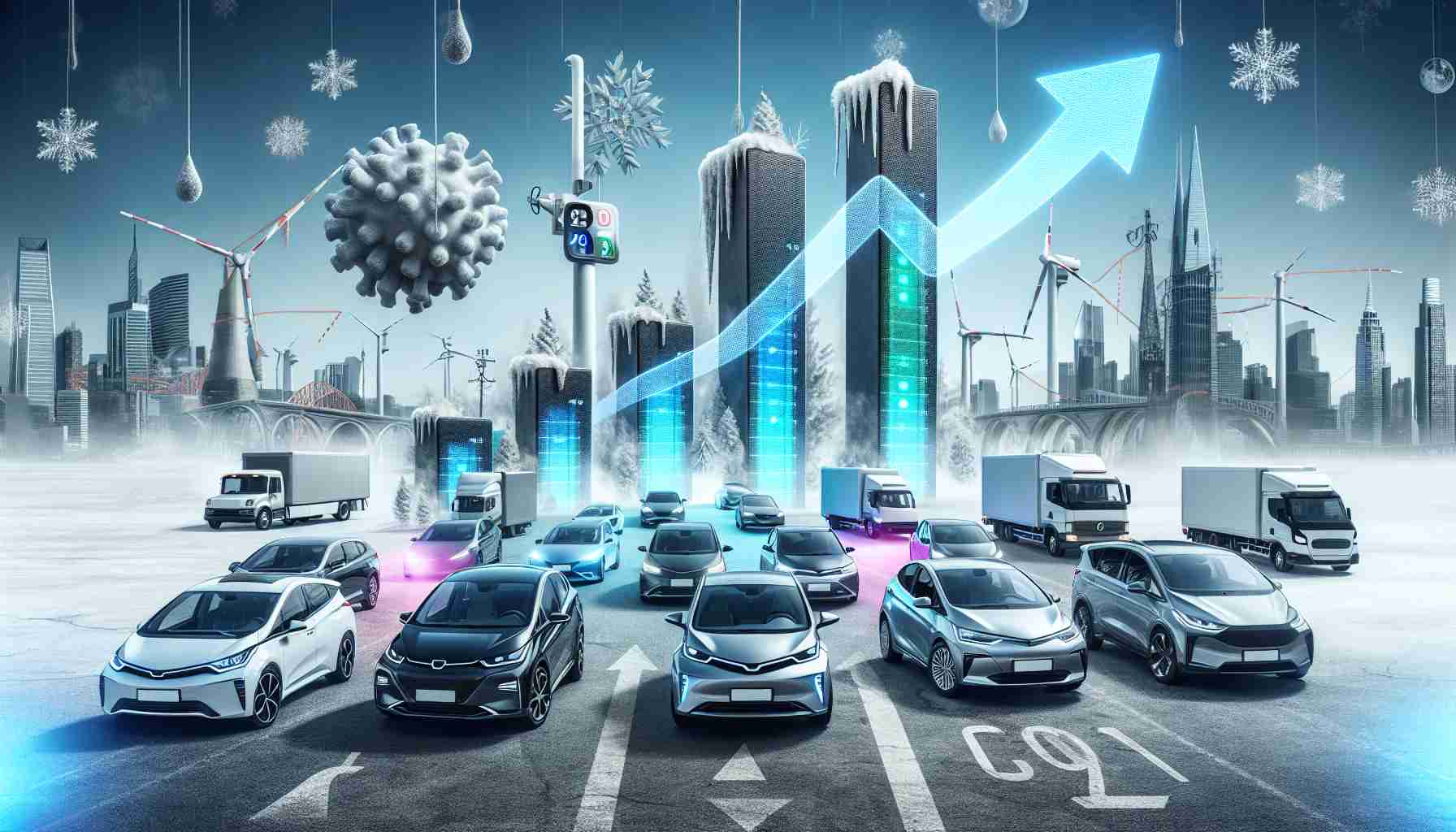Hybrid Popularity On The Rise Amidst EV Sales Slowdown
The electrified-auto industry is experiencing a dynamic shift, with hybrids gaining traction as the electric vehicle (EV) market experiences a dip in consumer interest. A national survey indicates that the number of people willing to consider EV ownership has declined from 43% to 35% over the past year, while opposition to EVs has increased.
Conversely, major automakers like Ford and Toyota are noticing a significant uptick in hybrid sales. This could be a direct result of the more approachable pricing of hybrids compared to EVs. Data suggests the average cost of a hybrid vehicle was around $42,500 late last year, markedly less than the $55,000 average price tag of EVs.
The appeal of plug-in hybrid electric vehicles (PHEVs), with their extended electric-only range, strikes a balance for consumers. Models such as the Ford Maverick and Camry hybrids offer the benefits of electrification without a steep price difference from conventional vehicles.
Maintenance and Driving Habits: EV vs. Hybrid Considerations
Another advantage for hybrids lies in the maintenance realm where typically, EVs are less expensive to maintain due to fewer moving parts. However, it’s worth noting that repair costs following an accident may be higher for EVs, which can affect insurance premiums. As insurers gather more data, these costs are expected to decrease.
Driving needs play a crucial role in choosing between an EV and a hybrid. For drivers with shorter, daily commutes who can conveniently charge their vehicles at home or work, an EV might be the most suitable choice due to its sufficient range and cost-effectiveness. On the other hand, for those who often embark on longer trips and have limited access to charging stations, a hybrid offers a versatile solution.
Noteworthy EV and Hybrid Models
As choices for EV models expand, consumers can explore options beyond established brands. For example, the Lucid Air stands out in the luxury EV segment, celebrated for its performance and design, and has clinched several awards including World Luxury Car of the Year for its Grand Touring trim.
In the EV truck and SUV categories, Rivian’s R1T and R1S models are worth consideration due to their luxury finishes, utility features, and compelling performance, earning them significant accolades in their class. Tesla remains a prominent name with versatile offerings like the Model Y, catering to a diverse clientele in the continuously evolving electric vehicle landscape.
Key Questions and Answers on the Hybrid and EV Market Dynamics
Why is there a decline in consumer interest in EVs?
The decline in consumer interest in EVs may be due to several factors such as higher price points, range anxiety, concerns over charging infrastructure availability, and potential increases in electricity costs. Additionally, fluctuating government incentives and policies could influence consumer sentiment and purchasing decisions.
What are the challenges facing the EV market?
The key challenges for the EV market include the need for widespread and reliable charging infrastructure, managing the high costs of EVs compared to internal combustion engine vehicles, battery life and replacement costs, and addressing the environmental impact of battery production and disposal.
Are there controversies associated with hybrid vehicles?
One controversy surrounding hybrid vehicles is the debate over how environmentally friendly they really are. While they emit less pollution than conventional cars, they still release greenhouse gases when using their gasoline engines. Additionally, some critics argue that the focus on hybrids may detract from the push toward fully electric vehicles, which are typically seen as a more sustainable long-term solution.
Advantages of Hybrid and EV Adoption
Hybrids:
– Lower initial purchase price compared to EVs.
– No range anxiety due to the presence of a gasoline engine for longer trips.
– Lower reliance on charging infrastructure.
– Transitional technology stepping stone toward full electrification.
EVs:
– Lower tailpipe emissions, contributing to better air quality.
– Generally lower maintenance costs due to fewer moving parts.
– Potentially lower operating costs if electricity is cheaper than gasoline.
– Access to certain incentives and benefits, like carpool lanes and tax breaks.
Disadvantages of Hybrid and EV Adoption
Hybrids:
– Still reliant on fossil fuels and contribute to emissions when gas-powered.
– May have a higher maintenance cost than EVs due to the complexity of dual systems.
– Potentially less investment in infrastructure compared to EVs.
EVs:
– Higher initial cost can be a barrier to entry for consumers.
– Concerns over range and availability of charging stations.
– Repair costs following accidents can be high, affecting insurance costs.
For more information on electric and hybrid vehicles and the latest trends in the automotive industry, feel free to visit reputable sources such as Ford, Toyota, Lucid Motors, Rivian, and Tesla. Please note that the specifics of models and policies can change, so always refer to the official car manufacturers’ websites or trusted automotive news sources for the most current information.
The source of the article is from the blog j6simracing.com.br
